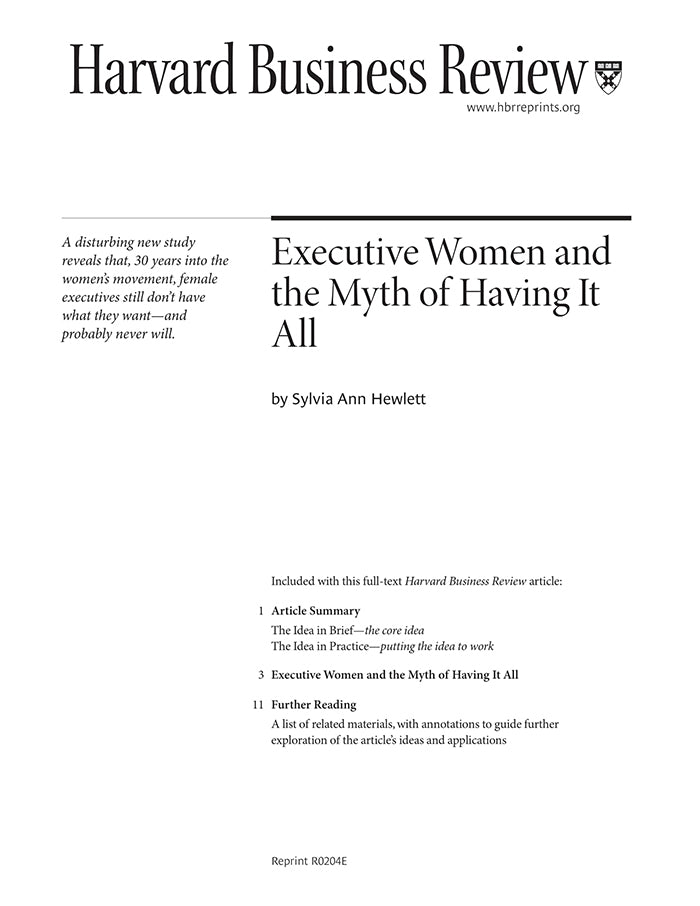Executive Women and the Myth of Having It All
受取状況を読み込めませんでした
This article includes a one-page preview that quickly summarizes the key ideas and provides an overview of how the concepts work in practice along with suggestions for further reading. When it comes to having a high-powered career and a family, the painful truth is that women in the United States don't "have it all." At midlife, in fact, at least a third of the country's high-achieving women--a category that includes high wage earners across a variety of professions--do not have children. For many, this wasn't a conscious choice: Indeed, most yearn for motherhood. So finds economist Sylvia Ann Hewlett, who recently fielded a nationwide survey to explore the professional and private lives of highly educated and high-earning women. Other findings are similarly disturbing. Many of these women who are raising children have suffered insurmountable career setbacks. In general, Hewlett's data show that, for too many women, the demands of ambitious careers, the asymmetries of male-female relationships, and the difficulties of conceiving later in life undermine the possibility of combining high-level work with family. By contrast, Hewlett's research reveals that high-achieving men continue to "have it all." Of the men she surveyed, 79% report wanting children, and 75% have them. Indeed, the more successful the man, the more likely he is to have a spouse and children. The opposite holds true for women. Hewlett urges lawmakers and corporations to establish policies that support working parents. But recognizing that changes won't happen overnight, she exhorts young women to be more deliberate about their career and family choices.
【書誌情報】
ページ数:16ページ
サイズ:A4
商品番号:HBSP-R0204E
発行日:2002/4/1
登録日:2010/8/10


